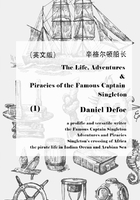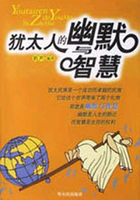The Miss Crumptons, or to quote the authority of the inscription on the garden-gate of Minerva House, Hammersmith, 'The Misses Crumpton,' were two unusually tall, particularly thin, and exceedingly skinny personages: very upright, and very yellow. ?Miss Amelia Crumpton owned to thirty-eight, and Miss Maria Crumpton admitted she was forty; an admission which was rendered perfectly unnecessary by the self-evident fact of her being at least fifty. ?They dressed in the most interesting manner-like twins! and looked as happy and comfortable as a couple of marigolds run to seed. ?They were very precise, had the strictest possible ideas of propriety, wore false hair, and always smelt very strongly of lavender.
Minerva House, conducted under the auspices of the two sisters, was a 'finishing establishment for young ladies,' where some twenty girls of the ages of from thirteen to nineteen inclusive, acquired a smattering of everything, and a knowledge of nothing; instruction in French and Italian, dancing lessons twice a-week; and other necessaries of life. ?The house was a white one, a little removed from the roadside, with close palings in front. ?The bedroom windows were always left partly open, to afford a bird's-eye view of numerous little bedsteads with very white dimity furniture, and thereby impress the passer-by with a due sense of the luxuries of the establishment; and there was a front parlour hung round with highly varnished maps which nobody ever looked at, and filled with books which no one ever read, appropriated exclusively to the reception of parents, who, whenever they called, could not fail to be struck with the very deep appearance of the place.
'Amelia, my dear,' said Miss Maria Crumpton, entering the school-room one morning, with her false hair in papers: as she occasionally did, in order to impress the young ladies with a conviction of its reality. ?'Amelia, my dear, here is a most gratifying note I have just received. ?You needn't mind reading it aloud.'
Miss Amelia, thus advised, proceeded to read the following note with an air of great triumph:
'Cornelius Brook Dingwall, Esq., M.P., presents his compliments to Miss Crumpton, and will feel much obliged by Miss Crumpton's calling on him, if she conveniently can, to-morrow morning at one o'clock, as Cornelius Brook Dingwall, Esq., M.P., is anxious to see Miss Crumpton on the subject of placing Miss Brook Dingwall under her charge.
'Adelphi.
'Monday morning.'
'A Member of Parliament's daughter!' ejaculated Amelia, in an ecstatic tone.
'A Member of Parliament's daughter!' repeated Miss Maria, with a smile of delight, which, of course, elicited a concurrent titter of pleasure from all the young ladies.
'It's exceedingly delightful!' said Miss Amelia; whereupon all the young ladies murmured their admiration again. ?Courtiers are but school-boys, and court-ladies school-girl's.
So important an announcement at once superseded the business of the day. ?A holiday was declared, in commemoration of the great event; the Miss Crumptons retired to their private apartment to talk it over; the smaller girls discussed the probable manners and customs of the daughter of a Member of Parliament; and the young ladies verging on eighteen wondered whether she was engaged, whether she was pretty, whether she wore much bustle, and many other whethers of equal importance.
The two Miss Crumptons proceeded to the Adelphi at the appointed time next day, dressed, of course, in their best style, and looking as amiable as they possibly could-which, by-the-bye, is not saying much for them. ?Having sent in their cards, through the medium of a red-hot looking footman in bright livery, they were ushered into the august presence of the profound Dingwall.
Cornelius Brook Dingwall, Esq., M.P., was very haughty, solemn, and portentous. ?He had, naturally, a somewhat spasmodic expression of countenance, which was not rendered the less remarkable by his wearing an extremely stiff cravat. ?He was wonderfully proud of the M.P. attached to his name, and never lost an opportunity of reminding people of his dignity. ?He had a great idea of his own abilities, which must have been a great comfort to him, as no one else had; and in diplomacy, on a small scale, in his own family arrangements, he considered himself unrivalled. ?He was a county magistrate, and discharged the duties of his station with all due justice and impartiality; frequently committing poachers, and occasionally committing himself. ?Miss Brook Dingwall was one of that numerous class of young ladies, who, like adverbs, may be known by their answering to a commonplace question, and doing nothing else.
On the present occasion, this talented individual was seated in a small library at a table covered with papers, doing nothing, but trying to look busy, playing at shop. ?Acts of Parliament, and letters directed to 'Cornelius Brook Dingwall, Esq., M.P.,' were ostentatiously scattered over the table; at a little distance from which, Mrs. Brook Dingwall was seated at work. ?One of those public nuisances, a spoiled child, was playing about the room, dressed after the most approved fashion-in a blue tunic with a black belt-a quarter of a yard wide, fastened with an immense buckle-looking like a robber in a melodrama, seen through a diminishing glass.
After a little pleasantry from the sweet child, who amused himself by running away with Miss Maria Crumpton's chair as fast as it was placed for her, the visitors were seated, and Cornelius Brook Dingwall, Esq., opened the conversation.
He had sent for Miss Crumpton, he said, in consequence of the high character he had received of her establishment from his friend, Sir Alfred Muggs.
Miss Crumpton murmured her acknowledgments to him (Muggs), and Cornelius proceeded.
'One of my principal reasons, Miss Crumpton, for parting with my daughter, is, that she has lately acquired some sentimental ideas, which it is most desirable to eradicate from her young mind.' ?(Here the little innocent before noticed, fell out of an arm-chair with an awful crash.)
'Naughty boy!' said his mamma, who appeared more surprised at his taking the liberty of falling down, than at anything else; 'I'll ring the bell for James to take him away.'
'Pray don't check him, my love,' said the diplomatist, as soon as he could make himself heard amidst the unearthly howling consequent upon the threat and the tumble. ?'It all arises from his great flow of spirits.' ?This last explanation was addressed to Miss Crumpton.
'Certainly, sir,' replied the antique Maria: not exactly seeing, however, the connexion between a flow of animal spirits, and a fall from an arm-chair.
Silence was restored, and the M.P. resumed: 'Now, I know nothing so likely to effect this object, Miss Crumpton, as her mixing constantly in the society of girls of her own age; and, as I know that in your establishment she will meet such as are not likely to contaminate her young mind, I propose to send her to you.'
The youngest Miss Crumpton expressed the acknowledgments of the establishment generally. ?Maria was rendered speechless by bodily pain. ?The dear little fellow, having recovered his animal spirits, was standing upon her most tender foot, by way of getting his face (which looked like a capital O in a red-lettered play-bill) on a level with the writing-table.
'Of course, Lavinia will be a parlour boarder,' continued the enviable father; 'and on one point I wish my directions to be strictly observed. ?The fact is, that some ridiculous love affair, with a person much her inferior in life, has been the cause of her present state of mind. ?Knowing that of course, under your care, she can have no opportunity of meeting this person, I do not object to-indeed, I should rather prefer-her mixing with such society as you see yourself.'
This important statement was again interrupted by the high-spirited little creature, in the excess of his joyousness breaking a pane of glass, and nearly precipitating himself into an adjacent area. ?James was rung for; considerable confusion and screaming succeeded; two little blue legs were seen to kick violently in the air as the man left the room, and the child was gone.
'Mr. Brook Dingwall would like Miss Brook Dingwall to learn everything,' said Mrs. Brook Dingwall, who hardly ever said anything at all.
'Certainly,' said both the Miss Crumptons together.
'And as I trust the plan I have devised will be effectual in weaning my daughter from this absurd idea, Miss Crumpton,' continued the legislator, 'I hope you will have the goodness to comply, in all respects, with any request I may forward to you.'
The promise was of course made; and after a lengthened discussion, conducted on behalf of the Dingwalls with the most becoming diplomatic gravity, and on that of the Crumptons with profound respect, it was finally arranged that Miss Lavinia should be forwarded to Hammersmith on the next day but one, on which occasion the half-yearly ball given at the establishment was to take place. ?It might divert the dear girl's mind. ?This, by the way, was another bit of diplomacy.
Miss Lavinia was introduced to her future governess, and both the Miss Crumptons pronounced her 'a most charming girl;' an opinion which, by a singular coincidence, they always entertained of any new pupil.
Courtesies were exchanged, acknowledgments expressed, condescension exhibited, and the interview terminated.
Preparations, to make use of theatrical phraseology, 'on a scale of magnitude never before attempted,' were incessantly made at Minerva House to give every effect to the forthcoming ball. ?The largest room in the house was pleasingly ornamented with blue calico roses, plaid tulips, and other equally natural-looking artificial flowers, the work of the young ladies themselves. ?The carpet was taken up, the folding-doors were taken down, the furniture was taken out, and rout-seats were taken in. ?The linen-drapers of Hammersmith were astounded at the sudden demand for blue sarsenet ribbon, and long white gloves. ?Dozens of geraniums were purchased for bouquets, and a harp and two violins were bespoke from town, in addition to the grand piano already on the premises. ?The young ladies who were selected to show off on the occasion, and do credit to the establishment, practised incessantly, much to their own satisfaction, and greatly to the annoyance of the lame old gentleman over the way; and a constant correspondence was kept up, between the Misses Crumpton and the Hammersmith pastrycook.
The evening came; and then there was such a lacing of stays, and tying of sandals, and dressing of hair, as never can take place with a proper degree of bustle out of a boarding-school. ?The smaller girls managed to be in everybody's way, and were pushed about accordingly; and the elder ones dressed, and tied, and flattered, and envied, one another, as earnestly and sincerely as if they had actually come out.
'How do I look, dear?' inquired Miss Emily Smithers, the belle of the house, of Miss Caroline Wilson, who was her bosom friend, because she was the ugliest girl in Hammersmith, or out of it.
'Oh! charming, dear. ?How do I?'
'Delightful! you never looked so handsome,' returned the belle, adjusting her own dress, and not bestowing a glance on her poor companion.
'I hope young Hilton will come early,' said another young lady to Miss somebody else, in a fever of expectation.
'I'm sure he'd be highly flattered if he knew it,' returned the other, who was practising l'été.
'Oh! he's so handsome,' said the first.
'Such a charming person!' added a second.
'Such a distingué air!' said a third.
'Oh, what do you think?' said another girl, running into the room; 'Miss Crumpton says her cousin's coming.'
'What! ?Theodosius Butler?' said everybody in raptures.
'Is he handsome?' inquired a novice.
'No, not particularly handsome,' was the general reply; 'but, oh, so clever!'
Mr. Theodosius Butler was one of those immortal geniuses who are to be met with in almost every circle. ?They have, usually, very deep, monotonous voices. ?They always persuade themselves that they are wonderful persons, and that they ought to be very miserable, though they don't precisely know why. ?They are very conceited, and usually possess half an idea; but, with enthusiastic young ladies, and silly young gentlemen, they are very wonderful persons. ?The individual in question, Mr. Theodosius, had written a pamphlet containing some very weighty considerations on the expediency of doing something or other; and as every sentence contained a good many words of four syllables, his admirers took it for granted that he meant a good deal.
'Perhaps that's he,' exclaimed several young ladies, as the first pull of the evening threatened destruction to the bell of the gate.
An awful pause ensued. ?Some boxes arrived and a young lady-Miss Brook Dingwall, in full ball costume, with an immense gold chain round her neck, and her dress looped up with a single rose; an ivory fan in her hand, and a most interesting expression of despair in her face.
The Miss Crumptons inquired after the family, with the most excruciating anxiety, and Miss Brook Dingwall was formally introduced to her future companions. ?The Miss Crumptons conversed with the young ladies in the most mellifluous tones, in order that Miss Brook Dingwall might be properly impressed with their amiable treatment.
Another pull at the bell. ?Mr. Dadson the writing-master, and his wife. ?The wife in green silk, with shoes and cap-trimmings to correspond: the writing-master in a white waistcoat, black knee-shorts, and ditto silk stockings, displaying a leg large enough for two writing-masters. ?The young ladies whispered one another, and the writing-master and his wife flattered the Miss Crumptons, who were dressed in amber, with long sashes, like dolls.
Repeated pulls at the bell, and arrivals too numerous to particularise: papas and mammas, and aunts and uncles, the owners and guardians of the different pupils; the singing-master, Signor Lobskini, in a black wig; the piano-forte player and the violins; the harp, in a state of intoxication; and some twenty young men, who stood near the door, and talked to one another, occasionally bursting into a giggle. ?A general hum of conversation. ?Coffee handed round, and plentifully partaken of by fat mammas, who looked like the stout people who come on in pantomimes for the sole purpose of being knocked down.
The popular Mr. Hilton was the next arrival; and he having, at the request of the Miss Crumptons, undertaken the office of Master of the Ceremonies, the quadrilles commenced with considerable spirit. ?The young men by the door gradually advanced into the middle of the room, and in time became sufficiently at ease to consent to be introduced to partners. ?The writing-master danced every set, springing about with the most fearful agility, and his wife played a rubber in the back-parlour-a little room with five book-shelves, dignified by the name of the study. ?Setting her down to whist was a half-yearly piece of generalship on the part of the Miss Crumptons; it was necessary to hide her somewhere, on account of her being a fright.
The interesting Lavinia Brook Dingwall was the only girl present, who appeared to take no interest in the proceedings of the evening. ?In vain was she solicited to dance; in vain was the universal homage paid to her as the daughter of a member of parliament. ?She was equally unmoved by the splendid tenor of the inimitable Lobskini, and the brilliant execution of Miss Laetitia Parsons, whose performance of 'The Recollections of Ireland' was universally declared to be almost equal to that of Moscheles himself. ?Not even the announcement of the arrival of Mr. Theodosius Butler could induce her to leave the corner of the back drawing-room in which she was seated.
'Now, Theodosius,' said Miss Maria Crumpton, after that enlightened pamphleteer had nearly run the gauntlet of the whole company, 'I must introduce you to our new pupil.'
Theodosius looked as if he cared for nothing earthly.
'She's the daughter of a member of parliament,' said Maria.-Theodosius started.
'And her name is-?' he inquired.
'Miss Brook Dingwall.'
'Great Heaven!' poetically exclaimed Theodosius, in a low tone.
Miss Crumpton commenced the introduction in due form. ?Miss Brook Dingwall languidly raised her head.
'Edward!' she exclaimed, with a half-shriek, on seeing the well-known nankeen legs.
Fortunately, as Miss Maria Crumpton possessed no remarkable share of penetration, and as it was one of the diplomatic arrangements that no attention was to be paid to Miss Lavinia's incoherent exclamations, she was perfectly unconscious of the mutual agitation of the parties; and therefore, seeing that the offer of his hand for the next quadrille was accepted, she left him by the side of Miss Brook Dingwall.
'Oh, Edward!' exclaimed that most romantic of all romantic young ladies, as the light of science seated himself beside her, 'Oh, Edward, is it you?'
Mr. Theodosius assured the dear creature, in the most impassioned manner, that he was not conscious of being anybody but himself.
'Then why-why-this disguise? ?Oh! ?Edward M'Neville Walter, what have I not suffered on your account?'
'Lavinia, hear me,' replied the hero, in his most poetic strain. ?'Do not condemn me unheard. ?If anything that emanates from the soul of such a wretch as I, can occupy a place in your recollection-if any being, so vile, deserve your notice-you may remember that I once published a pamphlet (and paid for its publication) entitled "Considerations on the Policy of Removing the Duty on Bees'-wax."'
'I do-I do!' sobbed Lavinia.
'That,' continued the lover, 'was a subject to which your father was devoted heart and soul.'
'He was-he was!' reiterated the sentimentalist.
'I knew it,' continued Theodosius, tragically; 'I knew it-I forwarded him a copy. ?He wished to know me. ?Could I disclose my real name? ?Never! ?No, I assumed that name which you have so often pronounced in tones of endearment. ?As M'Neville Walter, I devoted myself to the stirring cause; as M'Neville Walter I gained your heart; in the same character I was ejected from your house by your father's domestics; and in no character at all have I since been enabled to see you. ?We now meet again, and I proudly own that I am-Theodosius Butler.'
The young lady appeared perfectly satisfied with this argumentative address, and bestowed a look of the most ardent affection on the immortal advocate of bees'-wax.
'May I hope,' said he, 'that the promise your father's violent behaviour interrupted, may be renewed?'
'Let us join this set,' replied Lavinia, coquettishly-for girls of nineteen can coquette.
'No,' ejaculated he of the nankeens. ?'I stir not from this spot, writhing under this torture of suspense. ?May I-may I-hope?'
'You may.'
'The promise is renewed?'
'It is.'
'I have your permission?'
'You have.'
'To the fullest extent?'
'You know it,' returned the blushing Lavinia. ?The contortions of the interesting Butler's visage expressed his raptures.
We could dilate upon the occurrences that ensued. ?How Mr. Theodosius and Miss Lavinia danced, and talked, and sighed for the remainder of the evening-how the Miss Crumptons were delighted thereat. ?How the writing-master continued to frisk about with one-horse power, and how his wife, from some unaccountable freak, left the whist-table in the little back-parlour, and persisted in displaying her green head-dress in the most conspicuous part of the drawing-room. ?How the supper consisted of small triangular sandwiches in trays, and a tart here and there by way of variety; and how the visitors consumed warm water disguised with lemon, and dotted with nutmeg, under the denomination of negus. ?These, and other matters of as much interest, however, we pass over, for the purpose of describing a scene of even more importance.
A fortnight after the date of the ball, Cornelius Brook Dingwall, Esq., M.P., was seated at the same library-table, and in the same room, as we have before described. ?He was alone, and his face bore an expression of deep thought and solemn gravity-he was drawing up 'A Bill for the better observance of Easter Monday.'
The footman tapped at the door-the legislator started from his reverie, and 'Miss Crumpton' was announced. ?Permission was given for Miss Crumpton to enter the sanctum; Maria came sliding in, and having taken her seat with a due portion of affectation, the footman retired, and the governess was left alone with the M.P. ?Oh! how she longed for the presence of a third party! ?Even the facetious young gentleman would have been a relief.
Miss Crumpton began the duet. ?She hoped Mrs. Brook Dingwall and the handsome little boy were in good health.
They were. ?Mrs. Brook Dingwall and little Frederick were at Brighton.
'Much obliged to you, Miss Crumpton,' said Cornelius, in his most dignified manner, 'for your attention in calling this morning. ?I should have driven down to Hammersmith, to see Lavinia, but your account was so very satisfactory, and my duties in the House occupy me so much, that I determined to postpone it for a week. ?How has she gone on?'
'Very well indeed, sir,' returned Maria, dreading to inform the father that she had gone off.
'Ah, I thought the plan on which I proceeded would be a match for her.'
Here was a favourable opportunity to say that somebody else had been a match for her. ?But the unfortunate governess was unequal to the task.
'You have persevered strictly in the line of conduct I prescribed, Miss Crumpton?'
'Strictly, sir.'
'You tell me in your note that her spirits gradually improved.'
'Very much indeed, sir.'
'To be sure. ?I was convinced they would.'
'But I fear, sir,' said Miss Crumpton, with visible emotion, 'I fear the plan has not succeeded, quite so well as we could have wished.'
No!' exclaimed the prophet. ?'Bless me! ?Miss Crumpton, you look alarmed. ?What has happened?'
'Miss Brook Dingwall, sir-'
'Yes, ma'am?'
'Has gone, sir'-said Maria, exhibiting a strong inclination to faint.
'Gone!'
'Eloped, sir.'
'Eloped!-Who with-when-where-how?' almost shrieked the agitated diplomatist.
The natural yellow of the unfortunate Maria's face changed to all the hues of the rainbow, as she laid a small packet on the member's table.
He hurriedly opened it. ?A letter from his daughter, and another from Theodosius. ?He glanced over their contents-'Ere this reaches you, far distant-appeal to feelings-love to distraction-bees'-wax-slavery,' &c., &c. ?He dashed his hand to his forehead, and paced the room with fearfully long strides, to the great alarm of the precise Maria.
'Now mind; from this time forward,' said Mr. Brook Dingwall, suddenly stopping at the table, and beating time upon it with his hand; 'from this time forward, I never will, under any circumstances whatever, permit a man who writes pamphlets to enter any other room of this house but the kitchen.-I'll allow my daughter and her husband one hundred and fifty pounds a-year, and never see their faces again: and, damme! ma'am, I'll bring in a bill for the abolition of finishing-schools.'
Some time has elapsed since this passionate declaration. ?Mr. and Mrs. Butler are at present rusticating in a small cottage at Ball's-pond, pleasantly situated in the immediate vicinity of a brick-field. ?They have no family. ?Mr. Theodosius looks very important, and writes incessantly; but, in consequence of a gross combination on the part of publishers, none of his productions appear in print. ?His young wife begins to think that ideal misery is preferable to real unhappiness; and that a marriage, contracted in haste, and repented at leisure, is the cause of more substantial wretchedness than she ever anticipated.
On cool reflection, Cornelius Brook Dingwall, Esq., M.P., was reluctantly compelled to admit that the untoward result of his admirable arrangements was attributable, not to the Miss Crumptons, but his own diplomacy. ?He, however, consoles himself, like some other small diplomatists, by satisfactorily proving that if his plans did not succeed, they ought to have done so. ?Minerva House is in status quo, and 'The Misses Crumpton' remain in the peaceable and undisturbed enjoyment of all the advantages resulting from their Finishing-School.















